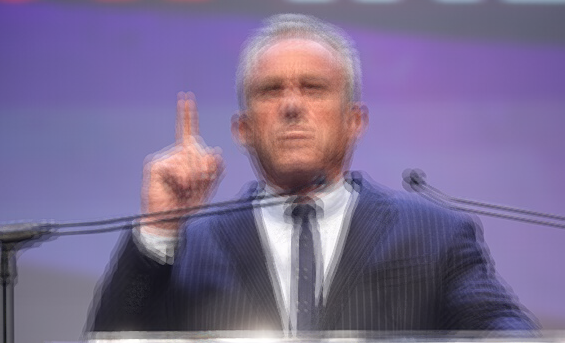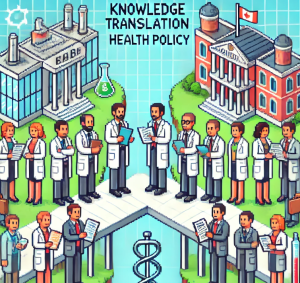
RFK’s Nomination to HHS: What It Means for Public Health Professionals
President-elect Donald Trump’s nomination of Robert F. Kennedy Jr. to lead the Department of Health and Human Services (HHS) has sent ripples across the public health community. Kennedy, a prominent anti-vaccine activist and vocal critic of federal health agencies, is poised to oversee a $2 trillion agency that includes the CDC, FDA, and NIH, among others. His appointment could lead to dramatic shifts in health policy, sparking both cautious optimism and significant concern among health professionals.
Here, we explore the implications of Kennedy’s nomination, what it means for public health agencies, and how professionals can navigate this uncertain landscape.
What is HHS and Why Does It Matter?
The HHS plays a pivotal role in safeguarding public health, coordinating responses to health emergencies, and ensuring food and drug safety. Its influence extends to managing Medicare and Medicaid, setting dietary guidelines, and leading health research.
The secretary of HHS wields considerable power, setting strategic priorities and shaping public health policies. This position involves making decisions that impact millions of Americans, from vaccine distribution to responses to health crises like pandemics.
Under Kennedy, HHS could take a drastically different direction, reflecting his unique and controversial views.
Kennedy’s Vision: Make America Healthy Again (MAHA)
Kennedy’s platform, dubbed “Make America Healthy Again” (MAHA), focuses on combating chronic diseases like diabetes and obesity, reducing ultra-processed foods, and addressing the influence of corporate interests in healthcare.
While these goals align with long-standing public health priorities, Kennedy’s track record raises questions about how he will achieve them. Critics point to his promotion of discredited health claims and skepticism toward vaccines as potential obstacles to meaningful reform.
Erosion of Trust in Science
One of the most significant concerns among public health professionals is the erosion of trust in science that Kennedy’s leadership may cause. Kennedy has long promoted debunked theories, such as the false link between vaccines and autism, and has questioned the safety of other FDA-approved treatments.
Trust in public health agencies is already fragile. A 2022 study in Health Affairs found that public confidence in these institutions depends heavily on their ability to provide clear, science-based guidance. Kennedy’s history of spreading misinformation could further undermine this trust, making it harder to address health crises effectively.
Impact on Vaccination Efforts
Kennedy’s nomination comes at a time when vaccine hesitancy is on the rise, and routine childhood vaccination rates are declining. His skepticism of vaccines and past claims about their safety raise alarms about the future of immunization programs.
While Kennedy has stated he won’t mandate or remove vaccines, his leadership could still weaken public health initiatives. If vaccination rates continue to drop, the risk of preventable disease outbreaks increases, endangering children and immunocompromised individuals.
Chronic Disease Focus: Opportunity or Risk?
Kennedy’s emphasis on reducing chronic diseases through dietary reforms and stricter regulations on food additives could yield positive changes. Many experts agree that the U.S. faces a crisis in chronic disease management, with diet-related illnesses like obesity and diabetes driving healthcare costs and reducing quality of life.
However, implementing such reforms in a Republican-controlled government may prove challenging. Historically, the GOP has resisted regulatory measures, and Kennedy’s proposals to overhaul dietary guidelines, ban pesticides, and reform agricultural subsidies may face significant opposition in Congress.
Fluoride and Other Public Health Measures
Kennedy has been a vocal critic of fluoridation in drinking water, claiming it is linked to health issues like cancer and IQ loss. These claims contradict decades of research showing fluoride’s safety and benefits in preventing tooth decay.
Public health experts fear that removing fluoride from drinking water could lead to a resurgence of dental health issues, particularly in vulnerable populations. Kennedy’s stance on fluoride highlights a broader concern: his willingness to challenge established public health measures without robust evidence.
The Role of Public Health Professionals in a Kennedy-Led HHS
For those working in public health, Kennedy’s appointment represents a complex challenge. While his focus on chronic disease and reducing corporate influence aligns with some public health goals, his history of spreading misinformation and questioning scientific consensus poses significant risks.
1. Advocacy for Evidence-Based Policies
Public health professionals must advocate for policies grounded in scientific evidence. This includes countering misinformation with clear, accessible communication and ensuring that public health messaging remains credible.
2. Strengthening Community Trust
Building trust at the community level will be more critical than ever. Public health workers can play a key role in educating communities about the benefits of vaccines, fluoride, and other proven interventions, helping to counter skepticism fueled by national rhetoric.
3. Preparing for Policy Shifts
Professionals should prepare for potential shifts in funding priorities and regulations. This may involve adapting programs to align with new directives while continuing to prioritize evidence-based practices.
What’s at Stake?
Kennedy’s appointment could fundamentally reshape the priorities of HHS, turning it into a platform for controversial and potentially harmful health policies. His views on vaccines, chronic disease, and public health agencies could undermine decades of progress, making it harder to protect vulnerable populations and respond to emerging health threats.
At the same time, his focus on systemic issues like corporate influence and chronic disease offers a rare opportunity for bipartisan reform—if approached responsibly and guided by science.
Navigating the Road Ahead
For public health professionals, the path forward under Kennedy’s leadership will require vigilance, adaptability, and a commitment to evidence-based practices. By staying informed, advocating for sound policies, and building trust within communities, the public health workforce can help mitigate potential risks and seize opportunities for positive change.
As the Senate confirmation process unfolds, the public health community must remain engaged, ensuring that the voices of scientists and healthcare workers are heard. The stakes have never been higher—for public health agencies, professionals, and the millions of Americans who depend on their work.
By understanding the implications of Kennedy’s nomination and preparing for its potential impact, public health professionals can continue to safeguard the health and well-being of their communities, even in the face of uncertainty.
Be Part of the Change – Get Weekly Updates!
Stay informed and connected. Subscribe for free and share this blog to make a difference in public health with others. If you liked this blog, please share it! Your referrals help This Week in Public Health reach new readers.



